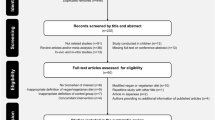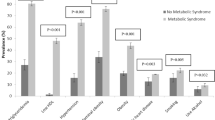Abstract
Background:
Although the health benefits of vegetarian diets have been well documented among Western population, there are geographic differences of vegetarian diets and the health benefits of the Taiwanese vegetarian diet have not been studied extensively. In addition to conventional risk factors, homocysteine and high-sensitivity C-reactive protein (hs-CRP) levels have been found to predict first atherothrombotic events. We undertook this study to examine the total risk profile of Taiwanese vegetarians.
Methods:
A total of 198 healthy subjects (99 vegetarians and 99 omnivores) were recruited. Fasting blood samples were analyzed for glucose, cholesterol, triglyceride, high-density lipoprotein cholesterol (HDL-C), low-density lipoprotein cholesterol (LDL-C), white blood cell count, hs-CRP and homocysteine.
Results:
There was no significant difference in age, body mass index, blood glucose, white blood cell count, triglyceride and HDL-C between the two groups. The vegetarian group had significantly more females (65.7 vs 46.5%); lower body weight (58.66±11.13 vs 62.88±12.24 kg); shorter height (159.14±7.88 vs 162.53 ±8.14 cm); lower total cholesterol (184.74±33.23 vs 202.01±41.05 mg/dl); and lower LDL-C (119.63±31.59 vs 135.89±39.50 mg/dl). Hs-CRP was significantly lower (0.14±0.23 vs 0.23±0.44 mg/dl, P=0.025), whereas homocysteine was significantly higher (10.97±6.69 vs 8.44±2.50 μmol/l, P=0.001) in vegetarians than omnivores.
Conclusions:
Taiwanese vegetarians have lower total cholesterol, LDL-C and hs-CRP levels, and higher homocysteine levels than omnivores. Owing to different predictive value of each risk factor, the Taiwanese vegetarians had a better cardiovascular risk profile than omnivores. Whether the Taiwanese vegetarian diet should be supplemented with vitamin B12 to lower serum homocysteine level remains to be addressed.
This is a preview of subscription content, access via your institution
Access options
Subscribe to this journal
Receive 12 print issues and online access
$259.00 per year
only $21.58 per issue
Buy this article
- Purchase on Springer Link
- Instant access to full article PDF
Prices may be subject to local taxes which are calculated during checkout
Similar content being viewed by others
References
Albert MA, Glynn RJ, Ridker PM (2003). Plasma concentration of C-reactive protein and the calculated Framingham coronary heart disease risk score. Circulation 108, 161–165.
Benetos A, Thomas F, Bean KE, Guize L (2003). Why cardiovascular mortality is higher in treated hypertensives versus subjects of the same age, in the general population. J Hypertens 21, 1635–1640.
Chang JB, Chu NF, Shen MH, Wu DM, Liang YH, Shieh SM (2003). Determinants and distributions of plasma total homocysteine concentrations among school children in Taiwan. Eur J Epidemiol 18, 33–38.
Clarke R, Stansbie D (2001). Assessment of homocysteine as a cardiovascular risk factor in clinical practice. Ann Clin Biochem 38, 624–632.
Danesh J, Collins R, Appleby P, Peto R (1998). Association of fibrinogen, C-reactive protein, albumin, or leukocyte count with coronary heart disease. JAMA 279, 1477–1482.
Fakhrzadeh H, Ghotbi S, Pourebrahim R, Nouri M, Heshmat R, Bandarian F et al. (2006). Total plasma homocysteine, folate, and vitamin B12 status in healthy Iranian adults: the Tehran homocysteine survey (2003–2004)/a cross-sectional population based study. BMC Public Health 6, 29.
Harpel PC (1997). Homocysteine, atherogenesis and thrombosis. Fibrinolysis Proteol 11, S77–S80.
Herrmann W, Schorr H, Oberid R, Geisel J (2003). Vitamin B-12 status, particularly holotranscobalamin II and methylmalonic acid concentrations, and hyperhomocysteinemia in vegetarians. Am J Clin Nutr 78, 131–136.
Huang YC, Chang SJ, Chiu YT, Chang HH, Cheng CH (2003). The status of plasma homocysteine and related B-vitamins in healthy young vegetarians and nonvegetarians. Eur J Nutr 42, 84–90.
Hung CJ, Huang PC, Lu SC, Li YH, Huang HB, Lin BF et al. (2002). Plasma homocysteine levels in Taiwanese vegetarians are higher than those of omnivores. J Nutr 132, 152–158.
Jialal I, Devaraj S, Venugopal SK (2004). C-reactive protein: risk marker or mediator in atherothrombosis. Hypertension 44, 6–11.
Klag MJ, Ford DE, Mead LA, He J, Whelton PK, Liang KY et al. (1993). Serum cholesterol in young men and subsequent cardiovascular disease. N Engl J Med 328, 313–318.
Krajèovioèvá-Kudláèková M, Blazicek P, Kopcova J, Bdderova A, Babinska K (2000). Homocysteine levels in vegetarians versus omnivores. Ann Nutr Metab 44, 135–138.
Krajèovioèvá-Kudláèková M, Šimonèiè R, Béderová A, Ondreièka R, Klvanová J (1994). Selected parameters of lipid metabolism in young vegetarians. Ann Nutr Metab 38, 331–335.
Kuller LH, Tracy RP, Shaten J, Meilahn EN (1996). Relationship of C-reactive protein and coronary heart disease in the MRFIT nested case-control study. Multiple risk factor intervention trial. Am J Epidemiol 144, 537–547.
Kuo CS, Lai NS, Ho LT, Lin CL (2004). Insulin sensitivity in Chinese ovo-lactovegetarians compared with omnivores. Eur J Clin Nutr 58, 312–316.
Lim HS, Heo YR (2002). Plasma total homocysteine, folate, and vitamin B12 status in Korean adults. J Nutr Sci Vitaminol 48, 290–297.
Lin CL (1997). Vegetarianism(Review). Tzu Chi Med J 9, 81–89.
Lin CL, Fan TC, Gueng MK (2001). Vascular dilatory functions of ovo-lactovegetarians compared with omnivores. Atherosclerosis 158, 247–251.
Lin CL, Huang JF, Lin YC, Huang CY, Lin PY (1997). Acceptability of lacto-ovovegetarian diet by patients at Tzu-Chi general hospital. Tzu Chi Med J 9, 199–206.
Lu SC, Wu WH, Lee CA, Chou HF, Lee HR, Huang PC (2000). LDL of Taiwanese vegetarians are less oxidizable than those of omnivores. J Nutr 130, 1591–1596.
Mendall MA, Strachan DP, Butland BK, Ballam L, Morris J, Sweetnam PM et al. (2000). C-reactive protein: relation to total mortality, cardiovascular mortality and cardiovascular risk factors in men. Eur Heart J 21, 1584–1590.
Nagyová A, Kudláèková M, Granèièová E, Magálová T (1998). LDL oxidizability and antioxidative status of plasma in vegetarians. Ann Nutr Metab 42, 328–332.
Pan WH, Chin CJ, Sheu CT, Lee MH (1993). Haemostatic factors and blood lipids in young Buddhist vegetarians and omnivores. Am J Clin Nutr 58, 354–359.
Rajaram S (2003). The effect of vegetarian diet, plant foods, and phytochemicals on hemostasis and thrombosis. Am J Clin Nutr 78, 552S–558S.
Refsum H, Nurk E, Smith AD, Ueland PM, Gjesdal CG, Bjelland I et al. (2006). The Hordaland Homocysteine Study: a community-based study of homocysteine, its determinants, and associations with disease. J Nutr 136, 1731S–1740S.
Ridker PM, Brown NJ, Vaughan DE, Harrison DG, Mehta JL (2004). Established and emerging plasma biomarkers in the prediction of first atherothrombotic events. Circulation 109, IV6–IV19.
Ridker PM, Cushman M, Stampfer MJ, Tracy RP, Hennekens CH (1997). Inflammation, aspirin, and the risk of cardiovascular disease in apparently healthy men. N Engl J Med 336, 973–979.
Ridker PM, Hennekens CH, Buring JE, Rifai N (2000). C-reactive protein and other markers of inflammation in the prediction of cardiovascular disease in women. N Engl J Med 342, 836–843.
Schnyder G, Roffi M, Flammer Y, Pin R, Hess OM (2002). Effect of homocysteine-lowering therapy with folic acid, vitamin B12, and vitamin B6 on clinical outcome after percutaneous coronary intervention: the Swiss Heart study: a randomized controlled trial. JAMA 288, 973–979.
Selhub J (2006). The many facets of hyperhomocysteinemia:studies from the Framingham cohorts. J Nutr 136, 1726S–1730S.
Su TC, Jeng JS, Wang JD, Torng PL, Chang SJ, Chen CF et al. (2006). Homocysteine, circulating vascular cell adhesion molecule and carotid atherosclerosis in postmenopausal vegetarian women and omnivores. Atherosclerosis 184, 356–362.
Szeto YT, Kwok TCY, Benzie IFF (2004). Effects of a long-term vegetarian diet on biomarkers of antioxidant status and cardiovascular disease risk. Nutrition 20, 863–866.
Taskin G, Yilmaz Sipahi E, Yildirimkaya M, Nadirler F, Halloran M, Ayoglu FN et al. (2006). Plasma total homocysteine levels in a healthy Turkish population sample. Acta Cardiol 61, 35–42.
The Homocysteine Studies Collaboration (2002). Homocysteine and risk of ischemic heart disease and stroke. JAMA 288, 2015–2022.
Tzeng MS, Kao MD, Yeh WT, Pan WH (1999). Food consumption frequency and eating habit among Taiwanese-NAHSIT 1993-1996. Nutr Sci J 24, 59–80.
Acknowledgements
The present study was supported by grant DTCRD 93(2)-08 from The Buddhist Dalin Tzu Chi General Hospital, Chia-Yi, Taiwan, Republic of China.
The authors are grateful for the statistical assistance of Jing-Er Chou, PhD of the National Yunlin University of Science and Technology.
Author information
Authors and Affiliations
Corresponding author
Additional information
Guarantor: C-L Lin.
Contributors: C-WC provided the initial idea and drafted the manuscript, C-LL reviewed the literature, developed the design and revised the manuscript; all authors subsequently collected, analyzed the data and have seen and approved the final revised version.
Conflicts of interest
We declare that we have no conflict of interest.
Rights and permissions
About this article
Cite this article
Chen, CW., Lin, YL., Lin, TK. et al. Total cardiovascular risk profile of Taiwanese vegetarians. Eur J Clin Nutr 62, 138–144 (2008). https://doi.org/10.1038/sj.ejcn.1602689
Received:
Revised:
Accepted:
Published:
Issue Date:
DOI: https://doi.org/10.1038/sj.ejcn.1602689
Keywords
This article is cited by
-
Systematic review and meta-analysis of the associations of vegan and vegetarian diets with inflammatory biomarkers
Scientific Reports (2020)
-
From Religion to Secularism: the Benefits of Fasting
Current Nutrition Reports (2018)
-
Vegan diet and blood lipid profiles: a cross-sectional study of pre and postmenopausal women
BMC Women's Health (2014)
-
Serum concentrations of cholesterol, apolipoprotein A-I and apolipoprotein B in a total of 1694 meat-eaters, fish-eaters, vegetarians and vegans
European Journal of Clinical Nutrition (2014)
-
Relationship of carotid intima-media thickness and duration of vegetarian diet in Chinese male vegetarians
Nutrition & Metabolism (2011)



